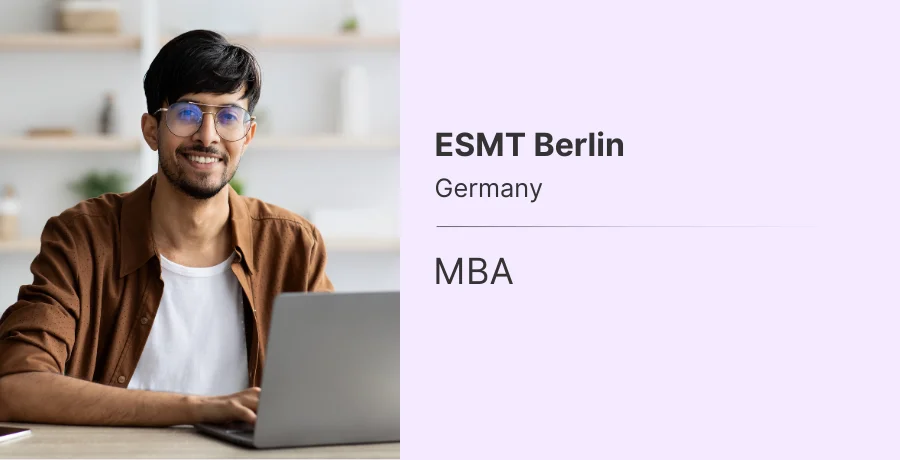Suppose you are an engineering graduate in India looking for global exposure, better job opportunities, and high salaries. In that case, pursuing an M.Tech in Germany is one of the best decisions you can make. Germany is known for its strong industrial base, technological advancements, and high demand. With tuition-free education at public universities, world-class infrastructure, and abundant job prospects, an M.Tech from Germany is a stepping stone to a high-paying career.
Here’s why you should seriously consider an M.Tech in Germany and how it can shape your future.
Germany is the Global Leader in Engineering and Technology
Germany is home to some of the world's largest engineering and technology companies, including Siemens, Volkswagen, Mercedes-Benz, Bosch, and BMW. The country has a strong industrial sector, with the engineering industry alone contributing over 3 percent to its GDP.
Germany has built its reputation as an engineering hub by continuously investing in research, automation, and innovation. The country is at the forefront of the automobile, mechanical, robotics, and artificial intelligence industries, making it the perfect destination for Indian students looking to specialize in cutting-edge fields.
Shortage of Engineers – Abundant Job Opportunities
Germany faces a severe shortage of engineers, which means there are more job vacancies than qualified professionals. Studies show thatthere are at least 3.3 job vacancies forevery unemployed engineer in Germany.
With over 100,000 job openings for engineers every year, Germany actively encourages international graduates to stay and work after their studies. Some of the most in-demand engineering fields in Germany include:
- Mechanical and Automotive Engineering
- Electrical and Electronics Engineering
- Computer Science and Information Technology
- Data Science and Artificial Intelligence
- Robotics and Automation
Graduates with an M.Tech in Germany have a much higher chance of securing well-paying jobs immediately after graduation.
High Salary Prospects for M.Tech Graduates
An M.Tech from Germany significantly increases earning potential. Below is a breakdown of the average annual salaries for engineers in Germany, converted into Indian Rupees.
|
Job Role |
Average Salary (EUR) |
Salary in INR (Approx.) |
|
Mechanical Engineer |
52,156 |
47,00,000 |
|
Data Scientist |
60,391 |
54,50,000 |
|
IT Manager |
76,000 |
68,70,000 |
|
Automation Engineer |
123,000 |
1.11 crore |
|
Robotics Research Engineer |
103,931 |
94,00,000 |
Germany’s strong economy and industrial dominance ensure stable jobs and high salaries, making it a sought-after destination for engineering graduates.
MTech Germany fee structure for Indian students
Studying Mtech in Germany is relatively affordable compared to studying Tuition fees at private universities can be higher, ranging from €10,000 to €20,000 per year (approximately ₹9 lakh to ₹18 lakh), depending on the institution and program specialization.
Unlike private institutions in India and other countries, where tuition fees can go up to ₹50-₹70 lakh, Germany offers world-class education at minimal costs. Most public universities in Germany charge little to no tuition fees, making it highly affordable for Indian students. Below are the top public universities that offer MTech in Germany.
|
University |
Global Ranking |
Tuition Fees (per year) |
|
37 |
₹20,000 (only administration fees) |
|
|
106 |
₹25,000 (only administration fees) |
|
|
University of Stuttgart |
347 |
₹1,50,000 |
|
136 |
₹2,00,000 |
|
|
156 |
₹30,000 (only administration fees) |
Germany’s tuition-free education policy has made it one of the most attractive study-abroad destinations for Indian students.
Scholarships for Indian Students
To further reduce financial burdens, Indian students can apply for various scholarships that cover tuition fees and living expenses. There are numerous scholarships available to pursue M.Tech in Germany for Indian students. But here are the few popular scholarships.
- DAAD Scholarship – Covers tuition fees and provides ₹1.10 lakh per month for living expenses.
- Erasmus+ Scholarship – Offers full tuition waivers and travel allowances.
- Heinrich Böll Foundation Scholarship – Covers full tuition and living expenses.
- Deutschlandstipendium – Offers ₹30,000 per month as financial support.
Many universities also offer merit-based and need-based scholarships, making Germany an affordable option for Indian students.
Stay Back and Work After Graduation
Germany allows international students to stay back for 18 months after completing their M.Tech to find a job. More than 75 percent of Indian students secure high-paying jobs within six months of graduation.
Once employed, graduates can apply for an EU Blue Card, which allows them to work across Europe with a minimum salary of ₹50 lakh per year.
Cost of Living for Indian Students in Germany
Germany is more affordable than other study-abroad destinations like the USA or the UK. The average monthly living costs for an Indian student range from€700 to €1,200 (approximately ₹63,000 to ₹1,08,000), which covers accommodation, food, transportation, and other personal expenses. However, the cost of living can vary significantly depending on the city.
Major cities like Munich or Frankfurt tend to have higher living costs compared to smaller cities like Leipzig or Dresden.
Below is a breakdown of monthly expenses for Indian students:
|
Expense Category |
Average Cost (EUR) |
Cost in INR |
|
Rent (shared apartment) |
400 |
36,000 |
|
Food & Groceries |
200 |
18,000 |
|
Health Insurance |
110 |
10,000 |
|
Transport |
50 |
4,500 |
|
Miscellaneous |
150 |
13,500 |
|
Total Monthly Cost |
910 |
82,000 |
Many students cover up to 60 percent of their expenses by working part-time jobs while studying.
Work While Studying – Earn up to ₹1.5 Lakh Per Month
International students in Germany are allowed to work 20 hours per week while studying. Engineering-related part-time jobs pay around ₹1.2 lakh - ₹1.5 lakh per month, which can help in managing living expenses.
A Globally Recognized Degree – Work in Any Country
A degree from a German university is recognized worldwide. Whether you want to work in India, the USA, Canada, or any European country, your German M.Tech degree will give you a competitive advantage in job markets.
M.Tech Intakes in Germany
Germany offers two major intakes for M.Tech programs:
1. Winter Intake (Primary Intake)
- Application Deadline: Between December and March
- Semester Starts: September - October
- Best Intake: Most public universities offer M.Tech programs during the winter intake.
- More Seats Available: Higher chances of admission.
- Ideal for Indian Students: Aligns with Indian academic calendars.
2. Summer Intake (Limited Intake)
- Application Deadline: Between June and September
- Semester Starts: March - April
- Fewer Universities: Limited courses and seats available.
- Competitive Admission: Higher cut-offs due to fewer seats.
Final Verdict – Should You Do M.Tech in Germany?
Absolutely yes. If you are an engineering graduate looking for affordable education, high-paying job opportunities, and global career growth, Germany is the best choice.
- Affordable education – Public universities have little to no tuition fees.
- High demand for engineers – Over 100,000 job openings every year.
- Excellent salaries – Engineers earn between ₹50 lakh to ₹1 crore per year.
- Work permit and PR opportunities – Stay back for 18 months after graduation.
- Scholarships available – Financial support to ease living costs.
With the right academic preparation and career strategy, an M.Tech in Germany can be your gateway to a lucrative and successful career.
FAQs related to Studying M.Tech in Germany:
Is Germany a good option for M.Tech?
Yes, Germany offers high-quality education, research opportunities, and affordability for M.Tech students. Public universities provide tuition-free education, making it a cost-effective choice.
Do I need to know German to study M.Tech in Germany?
Many universities offer M.Tech courses in English; however, proficiency in German is beneficial for daily life, internships, and job opportunities after graduation.
How long is the post-study work permit in Germany after completing M.Tech?
Graduates can apply for an 18-month post-study work permit to find employment. Once employed, they can transition to a long-term work visa or EU Blue Card.
What are the top universities for M.Tech in Germany?
Leading institutions include the Technical University of Munich (TUM), RWTH Aachen University, Karlsruhe Institute of Technology (KIT), University of Stuttgart, and TU Berlin.
What are the admission requirements for M.Tech in Germany?
Requirements typically include a relevant bachelor's degree with a strong academic record, English or German language proficiency (IELTS/TOEFL or TestDaF/DSH), and, in some cases, GRE scores.
Are there scholarships available for M.Tech students in Germany?
Yes, scholarships such as DAAD, Erasmus+, Heinrich Böll Foundation Scholarship, and Deutschlandstipendium help international students cover tuition and living expenses.
Can I work while studying M.Tech in Germany?
International students can work up to 20 hours per week during semesters and full-time during vacations, providing financial support and industry exposure.












